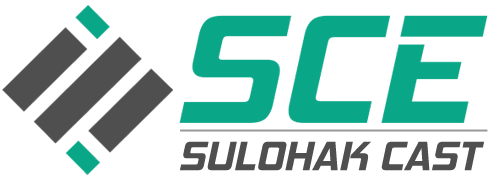
The Advantages of CNC Machining: Precision, Efficiency, and Quality
Unparalleled Precision:
One of the standout advantages of CNC machining is its exceptional precision. By utilizing computer-controlled automation, CNC machines can achieve incredibly tight tolerances and maintain consistent accuracy throughout the production process. This precision ensures that every part manufactured meets the exact specifications, resulting in minimal errors and high-quality components.
Enhanced Efficiency and Productivity:
CNC machining offers significant efficiency improvements compared to conventional machining methods. Once the design is programmed into the CNC system, the machine can perform repetitive tasks with speed and consistency. Unlike manual machining, CNC machines can operate continuously without the need for manual intervention, reducing production time and increasing overall productivity. This efficiency is particularly advantageous for large-scale production runs.
Versatility and Flexibility:
CNC machining offers remarkable versatility, accommodating a wide range of materials and complex geometries. From metals like aluminum, steel, and titanium to plastics and composites, CNC machines can handle various materials with ease. Moreover, CNC machines can execute intricate designs, including 3D contours and complex shapes, enabling manufacturers to create highly detailed and customized parts for diverse applications.
Improved Quality Control:
With CNC machining, quality control becomes a streamlined process. The precision and accuracy of CNC machines eliminate the inconsistencies and errors commonly associated with manual machining. Additionally, the integration of advanced sensors and monitoring systems enables real-time quality checks, ensuring that any deviations or anomalies are detected and corrected promptly. This enhanced quality control minimizes rework and rejects, leading to higher-quality end products.
Cost-Effective Manufacturing:
While the initial investment in CNC machines may be higher compared to traditional machining equipment, CNC machining proves to be cost-effective in the long run. The efficiency and automation of CNC machines reduce labor costs, as fewer operators are required for production. Moreover, the accuracy and consistency of CNC machining reduce material waste and scrap, optimizing material usage and lowering costs. The overall reduction in errors and rework also contributes to cost savings.
Integration with CAD/CAM Software:
CNC machining seamlessly integrates with Computer-Aided Design (CAD) and Computer-Aided Manufacturing (CAM) software. This integration allows for efficient design-to-production workflows, where 3D models and designs can be translated directly into machine instructions. The use of CAD/CAM software eliminates the need for manual programming, reducing human error and accelerating the production process.
Conclusion:
CNC machining offers significant advantages in precision, efficiency, and quality, making it a preferred choice for modern manufacturing processes. Its ability to deliver highly precise parts, enhance productivity, accommodate complex designs, and streamline quality control makes CNC machining invaluable across various industries. With its cost-effective and versatile capabilities, CNC machining continues to shape the future of manufacturing, enabling the production of high-quality components that drive innovation and progress.

Leave a Reply